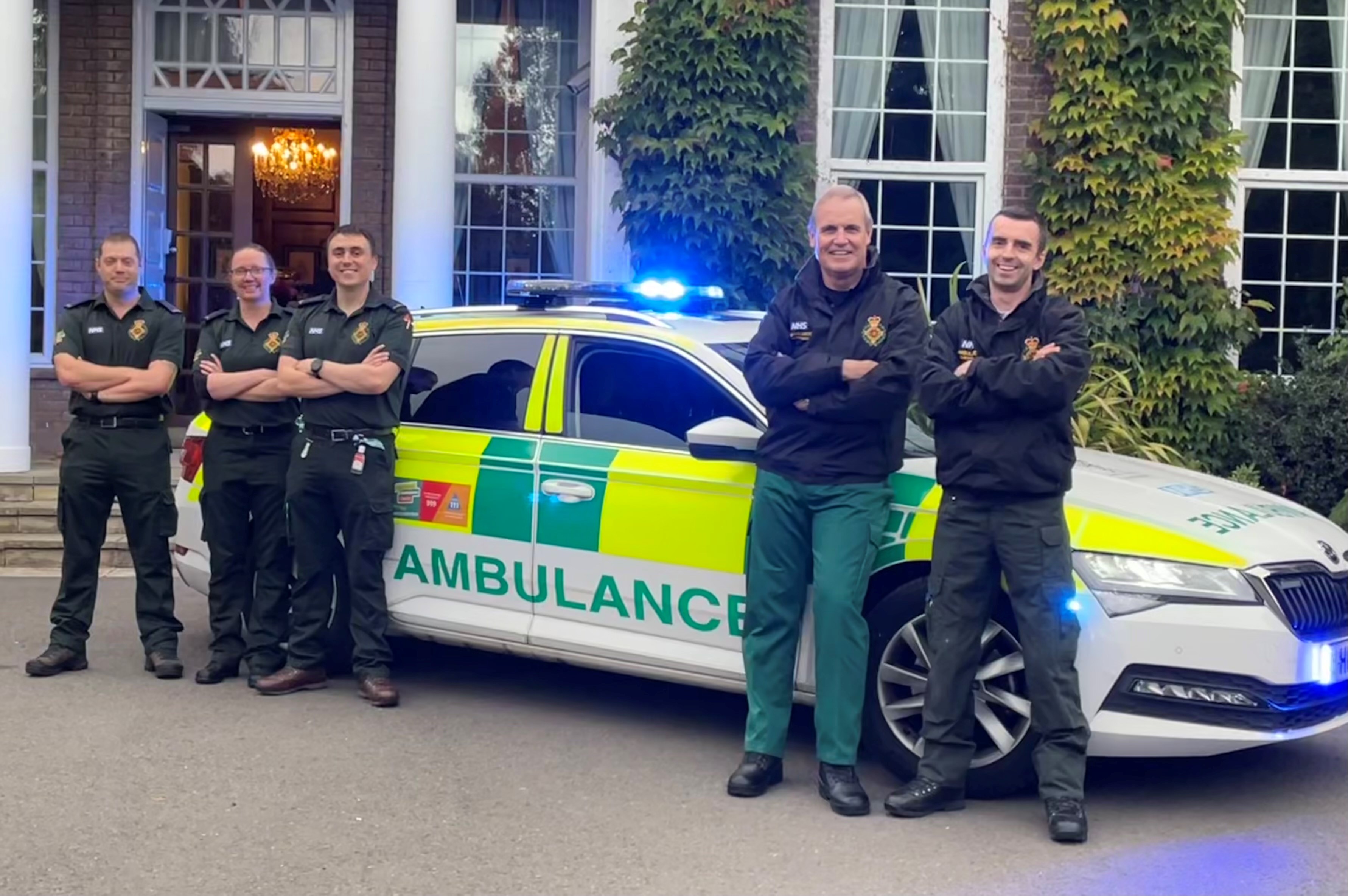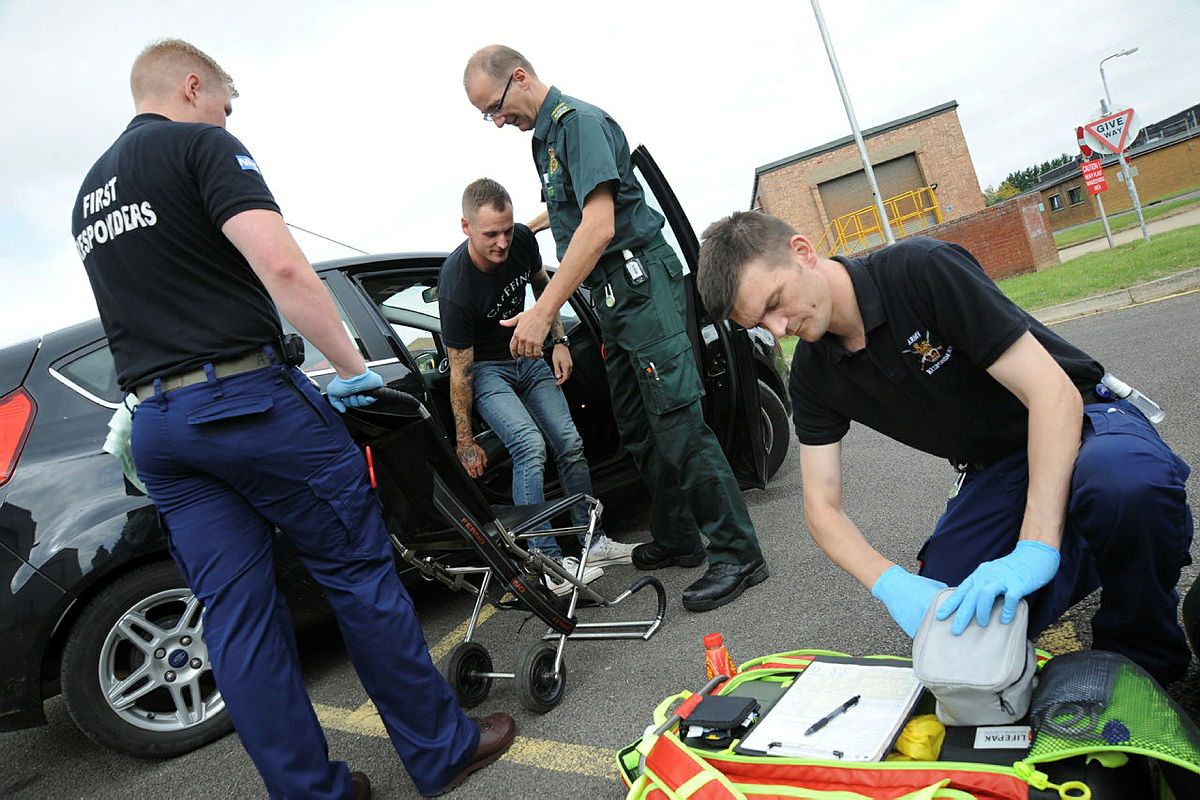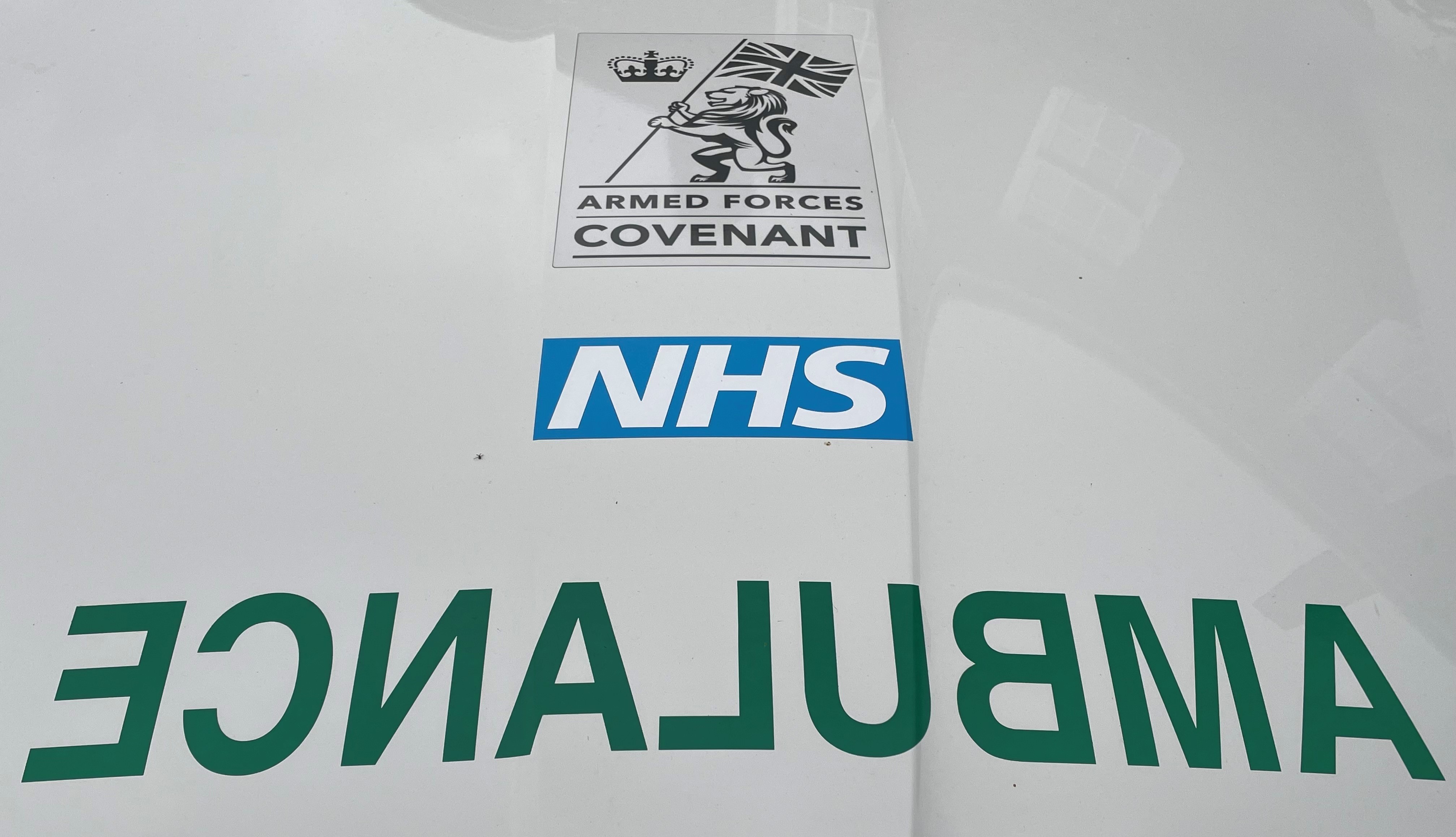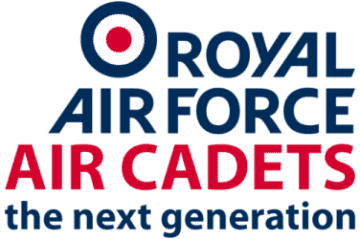“It is a great privilege to help those at a low ebb.”
It may be someone having a heart attack, a stroke, a seizure or a burn victim. Could you be the first on the scene to help? This is exactly what being a Military Co-Responder for the Ambulance Service is all about and a local team including those working at RAF High Wycombe (HWY) have been recognised with a prestigious award for their outstanding work.

Co-Responders, are all volunteers, who provide First on Scene medical help prior to the arrival of an Emergency Ambulance. The cars they use, equipment and kit are all funded by the South-Central Ambulance Charity, in support of South-Central Ambulance Service (who also run a gold-standard medical course for its volunteer Responders). They are trained in the use of an Automated External Defibrillator (AED), administration of some basic medications and how to deal with a myriad of medical emergencies including, chest pain, strokes, breathing difficulties, seizures and diabetic emergencies. Although teams are based around High Wycombe they will respond to situations wherever there is a need; this has taken crews to places like Windsor, Slough, Maidenhead, Aylesbury, Amersham, Chesham, Denham and Milton Keynes.
Wing Commander Rogers, from the RAF Digital Team, has been a member of the RAF HWY Team for ten years and considers it one of the best things he has ever done: “The sense of self-worth is immense, and it is a real privilege. It is also very sobering because when I put on the NHS uniform to help others, I may have had a bad day, but quickly realise that others are having a far worse day than me! Your feet are firmly planted in reality,” said the Wg Cdr. This is echoed by Corporal Lovell from the Service Discipline team who considers it;
“…something very rewarding to do in the evenings…..and has a massive impact on society.”
When called out, a First Responder vehicle maybe manned by two people – a driver/medic and a medic. The driver will support the medic and often acts as a mentor to junior medics in the crew.
Inevitably the volunteers may have to attend harrowing scenes such as a major traumatic event.
“Yes, we deal with some awful situations, but an NHS team leader will always be on scene and speak to all the responders after the event to ensure they are alright or to suggest any counselling,” said the Wg Cdr. “As Team Leader, I am informed and I always check up on the individual; we often have a debrief session over a coffee which can get emotional, as we come to terms with the events. I personally have attended over twenty cardiac arrests, which always stay in your memory. After 10 years, I can’t always remember all the 900 or so patients I have attended, but I will never forget the ones who didn’t survive.”

The BBC Three Counties Radio Annual Communities Award recognises those unsung heroes who have made a major impact in their locality. Held in Dunstable, the ‘Make a Difference Award’ recognises all voluntary Co-responders in the Buckinghamshire area – including the three Military Co-responder sections at RAF High Wycombe, RAF Halton & RAF Benson, and was collected on their behalf by the NHS Community Engagement Training Officers.
Could you be a Military Co-responder; you don’t need any specialist skills, just a desire to help others? Volunteers are always required. “It is very rewarding,” said the Wg Cdr enthusiastically and “unmatched by anything else,” according to Cpl Lovell. Come along for an observer shift to see what it is all about.

For those interested, Co-responders agree to a minimum of one five-hour shift per week (or around fifty shifts over a year). All work is carried out in the evenings (starting at five or six to around ten o’clock at night) or weekends if that is more suitable for the individual. To support the station, the team will also try to respond to any medical emergencies (within the RAF HWY estate) at any time; contacted by the Fire section, they are often the first Ambulance responder crew on scene.
Many congratulations on receiving the Make a Difference Award – it is richly deserved!








